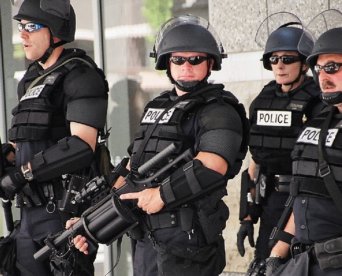- About
- Topics
- Picks
- Audio
- Story
- In-Depth
- Opinion
- News
- Donate
- Signup for our newsletterOur Editors' Best Picks.Send
Read, Debate: Engage.
| located: | USA |
|---|---|
| editor: | Gurmeet Singh |
Ghost-busters!
When there's something weird and it don't look good, who you gonna call?
Ghost-busters!
Ahh, if only life were like the innocent 80s song; not in the sense that if something strange transpired we could call on a group of human vigilantes against the supernatural. Rather, that we could correctly identify when something is strange in the first place.
There has been a growing trend lately – or at least a growing number of cases that have made it to the public attention – of white people calling the police on innocent black people in America. There have been cases of a group of people who were staying in an AirBnB who had the police called on them because they committed the crime of not smiling and waving at neighbours. A man had a park security guard called on him because he was pushing his baby in a pram. The other cases have also been similarly and predictably risible. All of those involved were black.
I don't like to talk to about white privilege. I find it, personally, a vague and sometimes misused subject. It seems the media push white privilege op-ed pieces during a week when Donald Trump hasn't said anything inexpressibly absurd. However, the fact that in 2018 America citizens can have the police called on them for nothing more than simply enjoying the freedoms afforded to them by the American constitution, seems to me to be a clear case of white privilege. These cases show that for black people in America (or many black people in America), the logic of justice is reversed, and they are guilty until proven innocent (proof here involves police questioning, itself a process fraught with difficulty, given the disproportionate amount of black people killed by police in America), and white citizens become the de facto guardians of the state; they become vigilantes of every nook and cranny, watching just in case someone, somewhere, is doing something shady, and is also black.
I cannot be sure if these cases are newly emerging, or if they are a part of an age-old American surveillance of its black citizens. My intuition tells me that unfortunately the latter may be true. Indeed, Malcolm X, in his autobiography, describes white people calling the police on black people simply because they would be walking down the street in a white neighbourhood. Though some of the old boundaries of clear segregation may have collapsed, the policing of individuals has not, and there persists in America the idea that certain people belong in certain places, and that these boundaries should not be crossed.
In a country desperate for unity, such suspicions and ridiculous fears need to be overcome.
